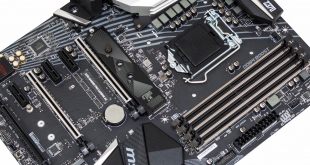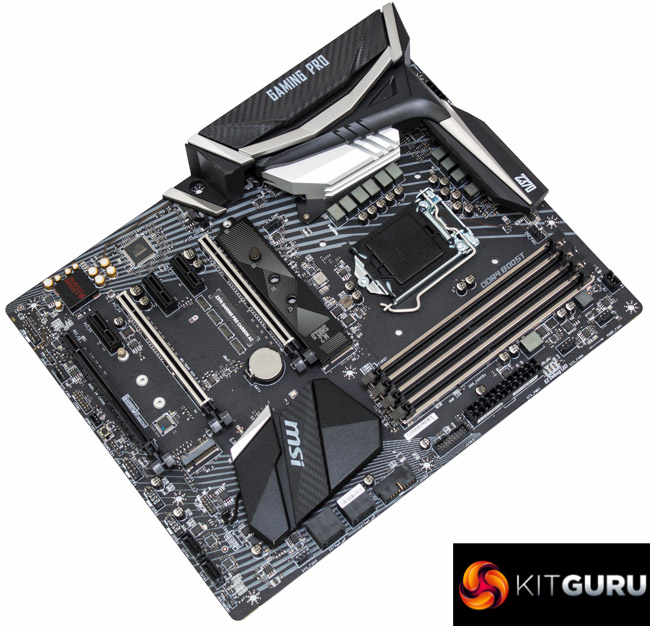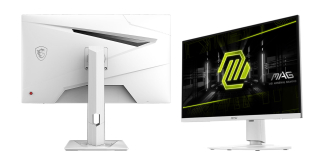
Intel has pushed its mainstream platform beyond quad cores for the first time since it debuted the quad core consumer processor in 2007. The new hexa-core “Coffee Lake” processors for the mainstream platform require new motherboards on the Z370 chipset. The MSI Z370 Gaming Pro Carbon AC is the first of those new motherboards to go under the KitGuru microscope.

Intel's response to AMD's Ryzen and Threadripper has been great news for consumers. To effectively combat AMD Threadripper Intel rolled out a brand new High-End Desktop (HEDT) platform, X299, with up to 18 core Skylake-X CPUs. A sizeable leap over previous generation Haswell-E and Broadwell-E CPUs that had a maximum of 8 and 10 cores, respectively, on the X99 platform.
In response to AMD Ryzen, Intel has delivered another new platform, Z370, with “Coffee Lake” CPUs to succeed Kaby Lake and Z270. Technically Z370 uses an existing socket, LGA 1151, albeit in a slightly revised form to support CPUs beyond the quad core size. That subtle change is important because Z370 represents the first time Intel has increased the maximum core count on its mainstream platform since 2007.
In January 2007 Intel released the Q6600, the company's first quad core processor, for the LGA 775 platform. Here we are 10 year later to witness Intel raise the maximum core count to 6 for the mainstream. To the disillusionment of many enthusiasts Intel has rushed in the new Z370 platform with a socket that retains no backwards compatibility. To spell that out it means Coffee Lake CPUs will not work on Z270 or Z170 and Skylake or Kaby Lake CPUs will not work with Z370.
Coffee Lake and Z370 is, therefore, a significant upgrade for consumers since it requires a new CPU and motherboard at the same time. It does, perhaps, offer a more affordable upgrade path for those looking to go beyond quad-core without jumping onto the more pricey Intel HEDT platform. That said consumers looking for something more than quad-core now also have healthy competition from AMD to consider.
Motherboards like MSI's Z370 Gaming Pro Carbon AC are surprisingly similar to Z270 counterparts in terms of specification and price, the only point of significant variation being support for Coffee Lake 6-core CPUs. Intel says Z370 now has a 95W socket and supports 2666MHz DDR4 as standard, for reference Z270 was rated for 91W and 2400MHz. In practice, both support high-wattage CPUs with overclocking and both support high frequency memory beyond 4GHz.
MSI's Z370 Gaming Pro Carbon is an evolution of the Z270 Gaming Pro Carbon, while the AC variant we have adds a WiFi expansion card. MSI is starting at Z370 launch day with thirteen models, it currently has twenty or more Z270 motherboard products, for comparison.
It's a fairly high-end motherboard for MSI's Z370 portfolio sitting below, at launch, only the Z370 Godlike Gaming and Z370 Gaming M5. In MSI “Gaming” lingo its the top “Performance Gaming” model currently available. As a refresher MSI segments its products Arsenal, Performance and Enthusiast of which that represents good, better and best, respectively.
MSI loads the Z370 Gaming Pro Carbon AC with features like Realtek ALC1220 HQ audio, Intel Gigabit and AC WiFi, extensive RGB coverage and a potent 10-phase VRM. Let's go in-depth and see what else MSI's latest motherboard has to offer.
| MSI Z370 Gaming Pro Carbon AC | |
| Form Factor | ATX, 30.4cm x 24.3cm |
| CPU Socket | Intel LGA 1151 Version 2 |
| Chipset | Intel Z370 |
| Memory | DDR4, 4 DIMMs, up to 64GB, up to 4000MHz+ with OC |
| Onboard Graphics | Intel HD Graphics (supported CPUs) |
| Discrete Graphics | Up to 3-way CrossFire/Quad CrossFire, Up to 2-way SLI, Quad SLI |
| Expansion Slots | 3 x PCIe 3.0 X16 (16/0/4, 8/8/4) 3 x PCIe 3.0 X1 |
| Storage | 6 x SATA III 6Gbps 2 x M.2 PCIe 32Gbps or SATA III 6Gbps |
| USB | 2 x USB 3.1 (2 Rear, 1 Type-A and 1 Type-C, via ASM3142) 8 x USB 3.0 (4 Rear, 4 Front, via Z370) 6 x USB 2.0 (2 Rear, 4 Front, via Z370) |
| Networking | Intel I219V Gigabit LAN Intel Dual Band Wireless-AC 8265 |
| Audio | Realtek ALC1220 Codec 7.1 channel HD audio |
| Fan Headers | 6, all support 3/4 pin fans (1 CPU, 1 x W_PUMP, 4 x SYS) |
| Rear I/O | 1 x PS/2 keyboard/ mouse combo port 2 x USB 2.0 Type-A ports 1 x DisplayPort port 1 x USB 3.1 Gen2 Type-A port 1 x USB 3.1 Gen2 Type-C port 4 x USB 3.1 Gen1 Type-A ports 1 x HDMI port 1 x LAN (RJ45) port 5 x OFC audio jacks 1 x Optical S/PDIF OUT connector |
| UEFI | UEFI AMI, 1 x 128Mb |
 KitGuru KitGuru.net – Tech News | Hardware News | Hardware Reviews | IOS | Mobile | Gaming | Graphics Cards
KitGuru KitGuru.net – Tech News | Hardware News | Hardware Reviews | IOS | Mobile | Gaming | Graphics Cards



Hi guys,
Indeed, this mobo gave you a nice results with this cpu.
But is it worth to buy it in combination with 8700K or maybe target some other model (of mobo) to get best results?